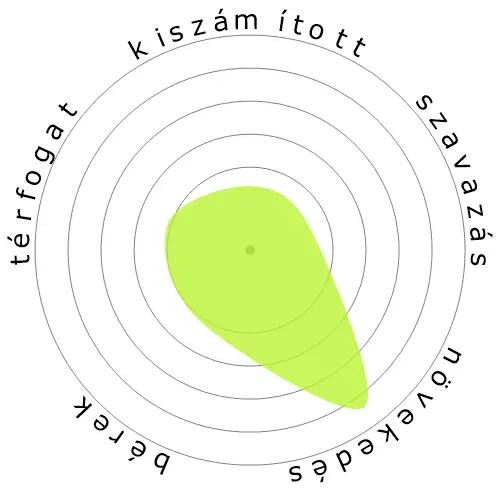Tolmácsok és Fordítók




Az emberek ezt is megtekintették
Számított automatizálási kockázat
Magas kockázat (61-80%): Az ebben a kategóriában található munkák jelentős fenyegetést jelentenek az automatizáció szempontjából, mivel sok feladatukat könnyen automatizálhatjuk a jelenlegi vagy a közeljövő technológiáival.
További információ arról, hogy mi ez a pontszám, és hogyan számítják ki, elérhető itt.
Felhasználói szavazás
Látogatóink szavazatai alapján valószínű, hogy ezt a foglalkozást automatizálni fogják. Ezt az értékelést tovább erősíti a kiszámított automatizálási kockázati szint, amely 70% esélyt becsül az automatizálásra.
Mit gondol, milyen kockázatai vannak az automatizációnak?
Milyen valószínűséggel fogják Tolmácsok és Fordítók robotok vagy mesterséges intelligencia helyettesíteni a következő 20 évben?
Érzelem
A következő grafikon mindenhol szerepel, ahol jelentős mennyiségű szavazat áll rendelkezésre, hogy értelmes adatokat lehessen megjeleníteni. Ezek a vizuális ábrázolások az időbeli felhasználói szavazási eredményeket mutatják, jelentős jelzést adva a hangulat trendjeiről.
Érzelem idővel (negyedévente)
Érzelem az időben (évente)
Növekedés
A(z) 'Interpreters and Translators' munkahelyi nyitások száma várhatóan 2,3%-kal nő 2033-ra.
Teljes foglalkoztatottság és becsült állásnyitások
A frissített előrejelzések 09-2025 időpontban esedékesek..
Bérek
A(z) 2023-ban a 'Interpreters and Translators' éves középfizetése 57 090 $ volt, vagyis 27 $ óránként.
'Interpreters and Translators' magasabb összeget kaptak, mint az országos mediánbér, ami 48 060 $-n állt.
Bérek az idők folyamán
Térfogat
2023 időpontjában 51 560 ember dolgozott 'Interpreters and Translators' munkakörben az Egyesült Államokban.
Ez körülbelül a < 0,001% -át képviseli az országban foglalkoztatott munkaerőnek.
Másképp fogalmazva, körülbelül minden 2 ezer. ember 'Interpreters and Translators'-ként dolgozik.
Munkaköri leírás
Tolmácsoljon szóban vagy jelnyelven, vagy fordítson le írott szöveget egyik nyelvről a másikra.
SOC Code: 27-3091.00


Megjegyzések
Leave a comment
Automation can incredibly speed up the process of translation but human element is a must. Also, in terms of transcreation and localisation for different contexts etc. the AI does not have enough understanding of culture and context regardless of the input.
No not a chance.
Ps : Google translate is still funny, I tried translating 1 sentence into like almost all languages and the sentence was not even close to what I had originally typed. I don't think it's gonna get better
However, we humans are still needed to correct the sometimes amazingly stupid solutions the machine offers when the text is completely new and there are no precedents. Anyway, I would not advise my daughter to choose this profession, except when she likes text editing...
Also interpreters and translators are two very different jobs with different automation risks, I don't think they should be together in one category.
Hagyjon egy választ erről a foglalkozásról